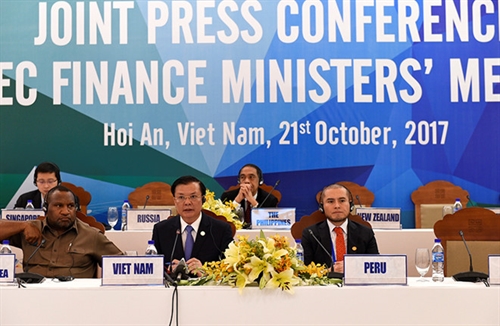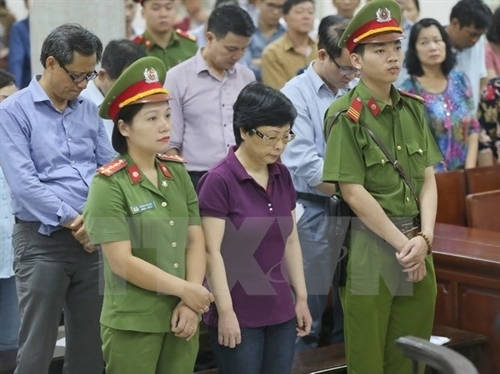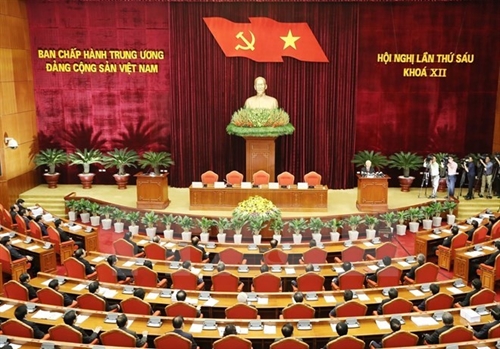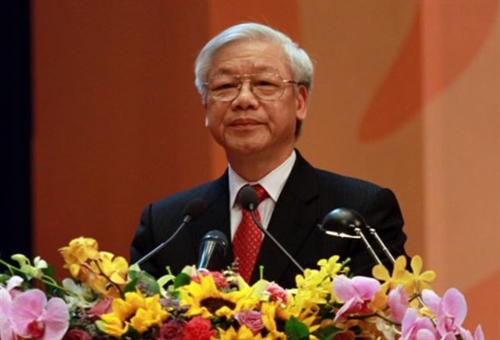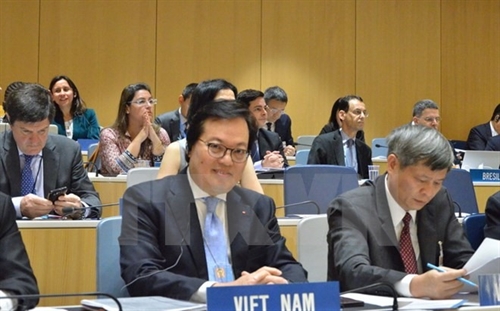The European Commission (EC) has issued a "yellow card" warning to Vietnam, after the country failed to demonstrate sufficient progress in the fight against illegal, unreported and unregulated (IUU) fishing worldwide.
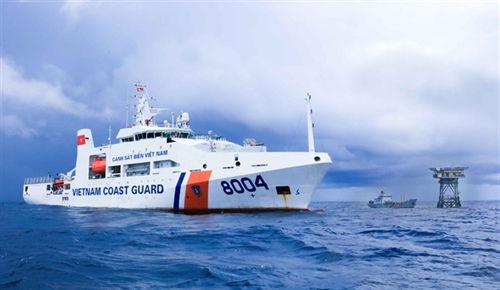 |
| The Vietnam Association of Seafood Exporters and Producers cooperates with the Vietnam Coast Guard to fight IUU fishing__Photo: canhsatbien.vn |
Though the measure is considered a warning which will not technically affect EC trade policy, the Vietnamese fishing industry is concerned that the yellow card will seriously harm the reputation of Vietnamese seafood worldwide, weakening sales. Further, fish exports from “yellow card” countries are subjected to intense scrutiny: all Vietnamese fish export containers will now be inspected, a process that can take three to four weeks and USD 633 per container. A rejected container can cost an exporter nearly USD 12,000, and the risk of rejection is considered high.
The decision, announced in a press release on Monday, identifies shortcomings in Vietnam’s efforts to fight illegal fishing, including the lack of an effective sanctioning system to deter IUU fishing activities and a lack of action to address illegal fishing activities conducted by Vietnamese vessels in the waters of neighboring countries, including Pacific Small Island Developing States.
Furthermore, Vietnam fails to regulate adequately fish that arrive onshore for local processing before being exported to international markets, including the European Union.
“With this action, today we demonstrate our firm commitment to fight illegal fishing globally," Commissioner for Environment, Maritime Affairs and Fisheries Karmenu Vella said. "We cannot ignore the impact that illegal activities conducted by Vietnamese vessels are having on marine ecosystems in the Pacific. We invite Vietnamese authorities to step up their fight so we can reverse this decision quickly. We are offering them our technical support.”
The "yellow card" is considered a warning and offers Vietnam the opportunity to take measures to rectify the situation within six months. To this end, the commission has proposed an action plan for the country.
The commission’s decision is the result of a thorough analysis and takes into due account the level of development of the country. It follows about five years of informal discussions with Vietnamese authorities. Vietnamese authorities have now been invited to engage in a formal dialogue to resolve the identified issues and implement the action plan.
According to the EC, between 11 and 26 million tones of fish - at least 15 percent of the world catch - are caught illegally each year, a figure worth between eight and 19 billion euros. As the world’s largest fish importer, the European Union’s import regulations wield global influence.
To address IUU fishing activities, the EC evaluates exporting countries. Countries that fail to meet EC standards are issued a warning ("yellow card"), followed by a "green card" if issues are resolved or a "red card" if they aren’t. A red card can lead to a trade ban on fishery products.
According to Vietnam Association of Seafood Exporters and Producers (VASEP), the receipt of a "yellow card" can seriously damage a country’s export of seafood to the EU. First of all, seafood exports to the EU will be reduced as EU customers are very afraid of being fined under the EC’s IUU strict rules. Further, adequately proving the source of fish exports under EC rules for “yellow card” countries is difficult. When the Philippines was given a “yellow card,” for example, up to 70 percent of its containers were rejected.
Drastic measures
The Vietnamese seafood sector has six months to strive to regain "green card" from the EC. Currently, VASEP and the Vietnamese business community have issued drastic measures to meet EU requirements.
VASEP and IUU VASEP Steering Committee have proposed to cooperate with four units including the Coast Guard Command, Border Guard Command, Directorate of Fisheries and the National Agro-Forestry-Fisheries Quality Assurance Department to carry out measures to combat IUU fishing. The seafood business community is also participating in the Commitment Against IUU Action Program, which the EU expects all fish exporters to join. As of mid-October, 73 Vietnamese companies have pledged to combat IUU.
VASEP and the Coast Guard Command on Tuesday signed a memorandum of understanding (MoU) on cooperation to fight against IUU fishing.
Under the MoU, the coast guard will strengthen inspection to discover IUU fishing vessels and coordinate with its international partners to prevent the violation. Meanwhile, VASEP will create conditions for the Coast Guard to investigate illegal seafood fishing.
The two sides will conduct activities to help fishermen carry out the national action program on combating IUU fishing.
Earlier, on October 20, Ambassador Bruno Angelet, Chief Representative of the Delegation of the European Union to Vietnam, had a working session with leaders of VASEP, the General Department of Fisheries and some agencies to discuss IUU and "yellow card" issue.
Outside the EU, the United States will be the second largest seafood importer in the world to adopt an imported fishery monitoring program to combat IUU fishing. The US Seafood Import Monitoring Program (SIMP) will enter into force on January 1, 2018.- (VNS/VLLF)
